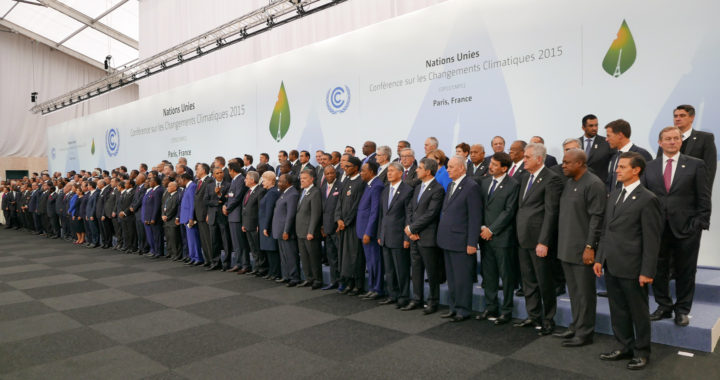Since the Trump administration took office earlier this year, the President has been working to make good on his campaign promises. In a lot of cases, that has meant battling his way upstream against a steady flow of criticism. The President’s environmental goals have been no different. Whether its the repeated attacks on his decision to open up federal lands to more extraction opportunities or his attempts to de-regulate the oil and gas industry, it seems that environmentalists can’t stand anything Trump does.
In general, that kind of partisan in-fighting is to be expected. What’s more, those decisions on the part of the Trump administration are easily defensible thanks to the continuing innovation within the oil and gas industry and the obvious economic benefits that extraction brings.
When it comes to Trump’s stance on the 2015 Paris Agreement, however, things get more complicated. In that instance, prominent oil and gas company executives are urging the President to comply with the terms of the Agreement.
What Is the Paris Agreement and Why Does Trump Want to Get Out?
In December of 2015, 195 countries adopted the world’s first universal, legally binding global climate deal. The primary goal of the Paris Agreement is to limit the harmful effects of climate change on the planet by acting as a guidebook for developing countries when they begin to plan for an energy future.
Understandably, the President isn’t interested in participating in an agreement that would make the United States legally bound to adhere to statutes it didn’t decide. As a result of that mindset, most sources indicate that the President will opt out of the Paris Agreement when he renders a verdict next week.
Which Companies Want to Keep the US in the Paris Agreement?
In the words of Ben van Burden, the CEO of Shell, “[The] world needs to go through an energy transition to prevent a very significant rise in global temperatures. And we need to be part of that solution in making it happen.”
Shell isn’t alone in that sentiment, either. Exxon Mobil, Chevron, and BP have all pledged their support for the Paris Agreement. These companies aren’t hoping to reign in US business production, they’re hoping to guide international oil and gas products and help them avoid some of the mistakes that have already been made.
Regardless of your opinion on climate change, and whether or not you feel as though anything needs to be done about it, the Paris Agreement is still important not for what it represents to businesses in the United States but for what it represents to the people in countries that are currently attempting to find an energy solution.
The Paris Agreement Is for Developing Nations
Companies in the US have long since begun to willingly adopt practices that are increasingly efficient and environmentally friendly. As a nation, our carbon emissions are some of the lowest in the world. When the President claims that the United States doesn’t need to participate in the Paris Agreement, he’s absolutely correct. The United States is already taking the initiative to care for the planet.
Unfortunately, that self-sufficiency isn’t at play in the rest of the world. When it was signed in December of 2015, the Paris Agreement was a sign that everyone on planet Earth needed to get on the same environmental page. As a world leader, the United States’ participation added legitimacy to the Agreement and opting out now could undo its ultimate goals.

